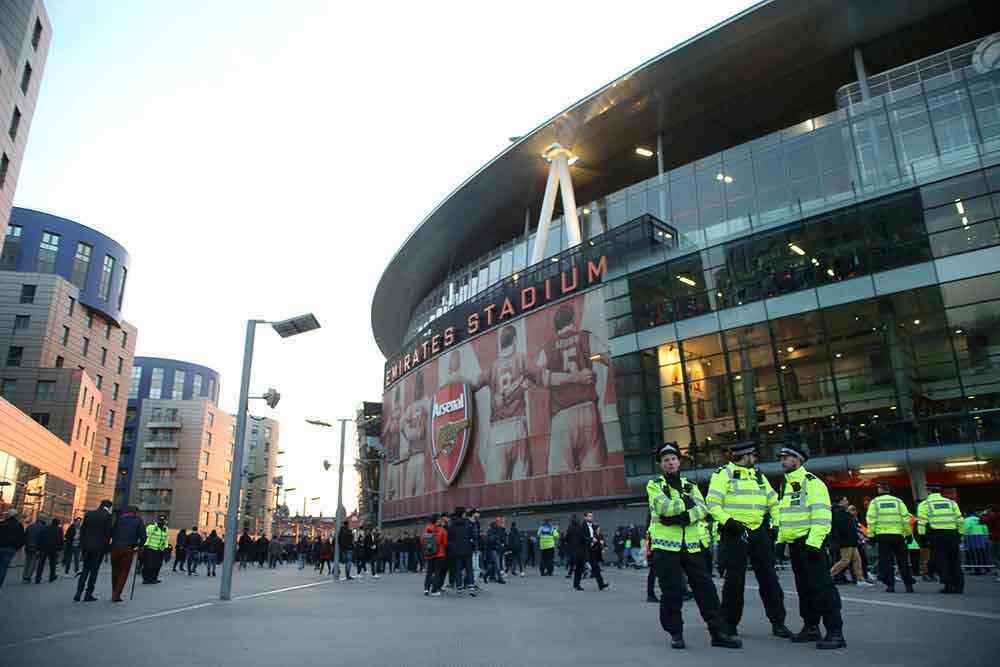The conventional wisdom concerning transfers is that the whole process is simple. You find the best player, make a large offer and of course he comes to your club because you want him and yours is a big club.
It is a naive and simplistic vision put forward by broadcasters and newspapers as an incredibly cheap way of filling space. It is an approach which treats the viewers, listeners and readers with utter contempt, considering them to be idiots who can’t think for themselves.
But such is the power of this argument that some clubs are suckered into it, and club directors are tricked into believing it makes sense, even though it doesn’t deliver the promised land of championships, or even Champions League spots every year.
Arsene Wenger however works in a completely different way. His way is different from many other managers because he has a long term vision, on which he and his colleagues at Arsenal have been working for years. For Arsenal works on legacy; the continuity of Arsenal that began in 1919 and has continued in the first division in an unbroken run ever since.
In Wenger’s reign that legacy has taken on a new perspective: endless entry into the Champions League, ensuring that if and when the top clubs form a breakaway Euro league, as they most likely will, Arsenal will always be invited to join.
From this desire always to punch above their weight, Arsenal under Wenger have evolved an eight point directive which dominates Arsenal’s dealings in the football market. Here they are:
1: The belief that not all transfers work
There is an overwhelming belief in football that spending money is the solution, but in reality a huge number of transfers fail to work – which is why so many managers are sacked year after year. The truth is that transfers are not the solution, but the problem. Given time most big money transfers come good, but during the time that it takes immeasurable damage can be done to the club because…
2: The team has to work together
Just because a player is brilliant at one club that does not mean he will fit with the team at the next club. There is the issue of his personality – in particular his ego. If he translates a transfer fee of £35m into a belief that he is the kingpin and that the whole team will operate around him, that is enough to destroy most well-oiled machines. It can also destroy a player’s own talent.
3: Conventional wisdom is nonsense
Throughout the summer the newspapers and broadcasters tot up how much the club has spent, as if it is a guidance to success. Yet it is anything but. If transfer fees led to success then Manchester City and Manchester Utd would win the league each year – and yet last year one missed out on the Champions League and the other only made it on the last day.
4: It is a long term strategy
Because most managers only last about one and a half seasons, everything becomes short term. There is no building for the future, no development of a proper youth policy. But Arsenal has this in spades, such that now, virtually every year a brilliant new youngster will come through at a cost of almost nothing, Indeed this year there are three or four different players vying for the chance to be the new incredible superstar at Arsenal who cost nothing. The Coquelin / Bellerin / Iwobi of 2016/17. It could be Gnabry, Akpom, Bielik, Willock… or maybe someone we haven’t spotted yet. In a couple of years he will be worth £30m.
5: Do we need a new centre forward?
Last season Arsenal scored three fewer goals than the champions. That doesn’t sound like a team that needs a new £50m centre forward. It sounds like a team that needs to sort out its defence a little more in order to make those goals count.
6: The foundations of the defence are already in place
Arsenal have four quality central defenders: Chambers, Gabriel, Mertesacker, Koscielny, with a youngster learning his trade and a player who in emergencies can stand in. The fact that three of these four were missing for the first game was singularly unfortunate, but what big name central defender is going to join Arsenal to work alongside that range of talent? What player will come in as cover knowing that he will be out of the team once the regulars are fit?
It might happen if Wenger believes that Chambers won’t develop, or that Gabriel won’t make it, but otherwise, there really is no need, unless the club can find an exceptional player who is willing to fight for his place among such talent.
7: If there is a new attacker it has got to be someone who can work the system.
That system means a system in which there is Ozil or Ramsey or Santi Cazorla playing through a certain type of ball or making a certain type of run. Not every centre forward can play that way. There’s no point in buying a player who doesn’t fit.
8: Xhaka has an important part to play.
As yet I have to say I am not sure whether it is defensive or attacking, but it is there, because here is a player who can play both. It is not impossible that Mr Wenger, seeing the new regulations that referees are working to, is expecting a large number of suspensions, and so is building a multiplicity of midfield defensive talent.
So in conclusion, this approach is unique to Arsenal, and it is curious that there are a few rather incessant babbling fans of the club who feel that Arsenal should stop being unique and instead adopt the approach of one of a number of other clubs that finished lower down the league.
Arsene Wenger however is not so readily diverted.
